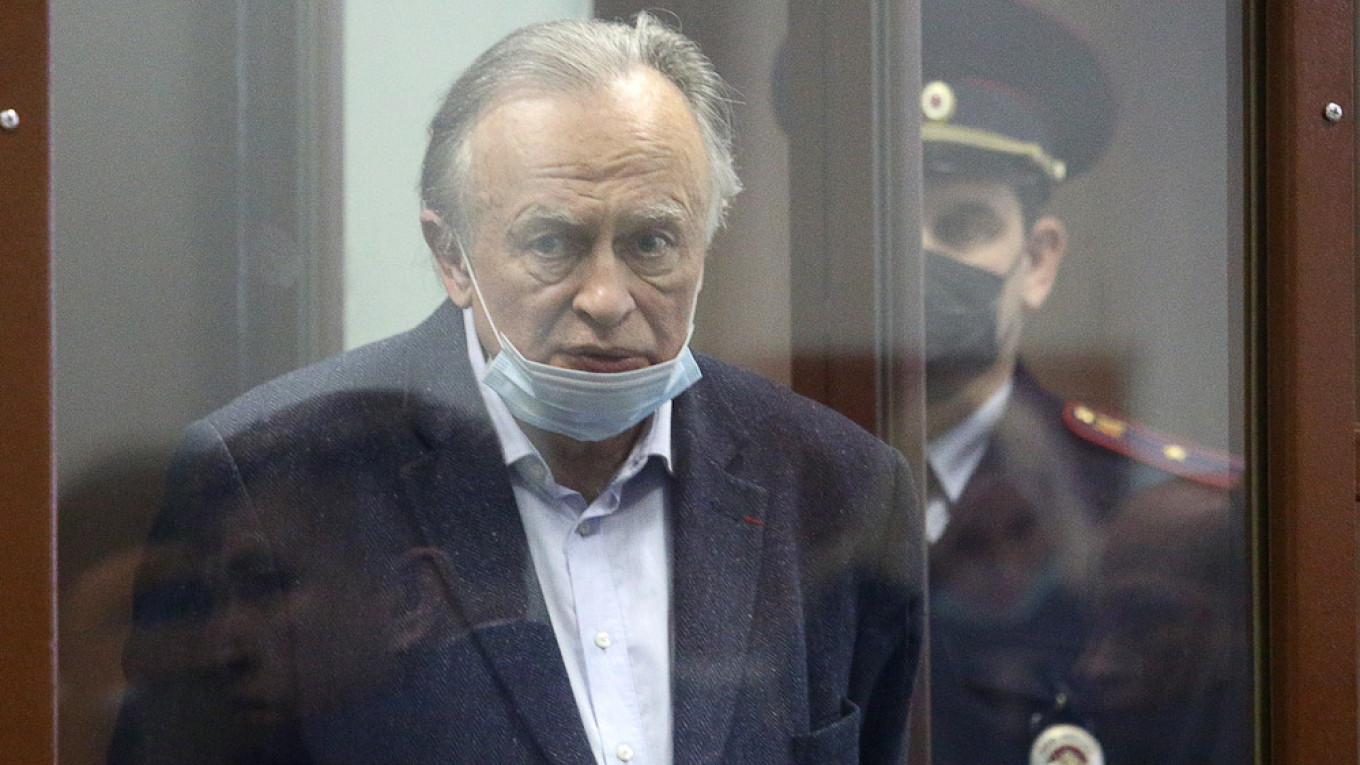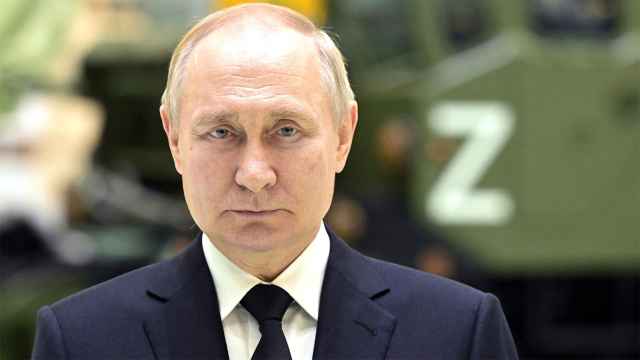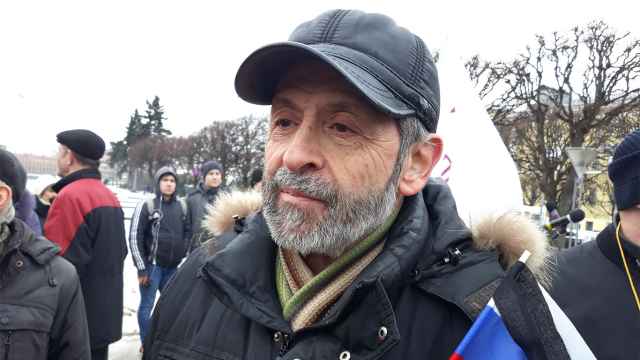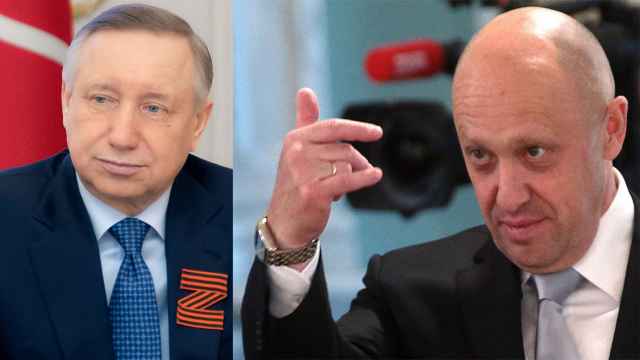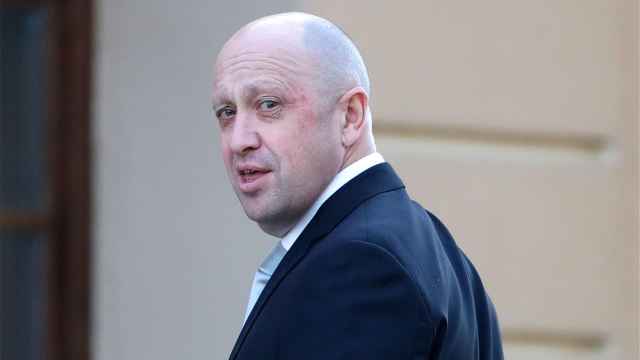A decorated Russian historian has received a lengthy prison sentence for murdering and dismembering his young lover, St. Petersburg-based media reported Friday.
Oleg Sokolov, 64, who taught at St. Petersburg State University, was pulled out of the Moika River with severed arms in his bag last November. He confessed to shooting his former student and girlfriend, 24-year-old Anastasia Yeshchenko, then sawing off her body parts and attempting to dispose of them.
St. Petersburg’s Oktyabrsky district court found Sokolov guilty of murder and sentenced him to 12.5 years in maximum-security prison, the Fontanka.ru news website reported from the courtroom.
State prosecutors had requested a 15-year sentence for Sokolov while his defense team asked for half as long. Sokolov pleaded guilty but said he was driven to the crime by violent disputes with Yeshchenko and harassment from a longtime colleague and rival.
The recipient of France’s top state award in 2003, Sokolov has authored books on emperor Napoleon Bonaparte and often led historical re-enactments dressed as Napoleon. Reports after his arrest said he had planned to commit suicide at an imperial St. Petersburg landmark in a Napoleon costume.
A young activist dressed as Napoleon appeared in court as judge Yulia Maximenko read out the verdict Friday, the independent Dozhd news channel reported.
Sokolov’s murder trial has renewed debate over Russia's relaxing of penalties for domestic violence in 2017. Activists link the lack of legislative protections for victims and police inaction to a spike in domestic abuse which has been further exacerbated by nationwide coronavirus lockdowns this year.
Sokolov was sentenced as Russian lawmakers advanced a libel bill this week that introduces prison sentences of up to five years for wrongful accusations of sexual abuse.
A Message from The Moscow Times:
Dear readers,
We are facing unprecedented challenges. Russia's Prosecutor General's Office has designated The Moscow Times as an "undesirable" organization, criminalizing our work and putting our staff at risk of prosecution. This follows our earlier unjust labeling as a "foreign agent."
These actions are direct attempts to silence independent journalism in Russia. The authorities claim our work "discredits the decisions of the Russian leadership." We see things differently: we strive to provide accurate, unbiased reporting on Russia.
We, the journalists of The Moscow Times, refuse to be silenced. But to continue our work, we need your help.
Your support, no matter how small, makes a world of difference. If you can, please support us monthly starting from just $2. It's quick to set up, and every contribution makes a significant impact.
By supporting The Moscow Times, you're defending open, independent journalism in the face of repression. Thank you for standing with us.
Remind me later.


